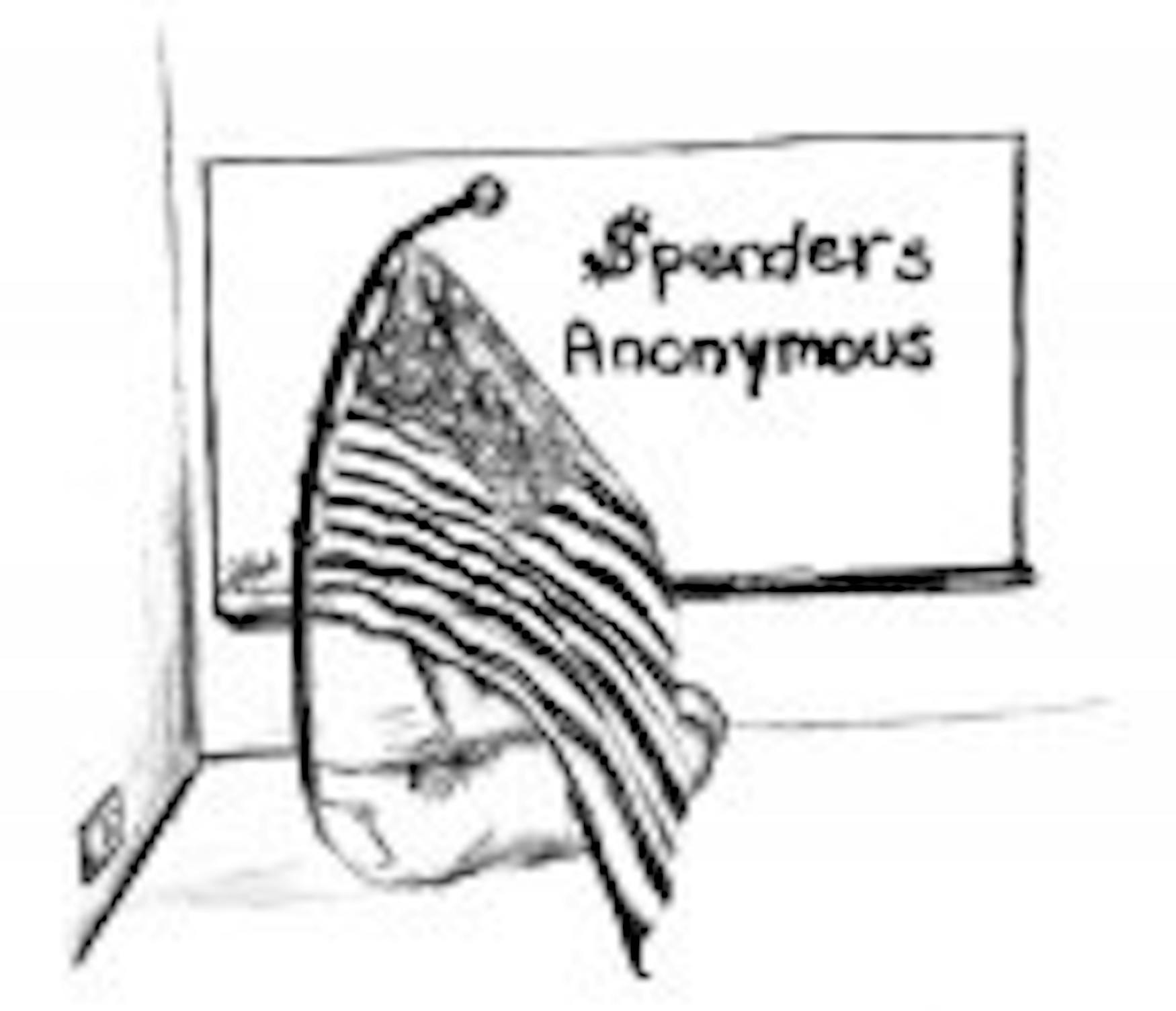Solve federal budget with vast spending cuts, not more debt
According to dictionary.com, addiction is defined as: "the state of being enslaved to a habit or practice or to something that is psychologically or physically habit-forming, to such an extent that its cessation causes severe trauma."
Now imagine an addict, not addicted to drugs, but to spending.
Because this addict spends more than he earns, he's debt-ridden. Every month, he pays his enormous credit card bill with ... another credit card. Unwilling to quit his addiction, he ignores them and spends more, going even deeper into debt. One day, he's unable to borrow anymore. Unable to pay his bills, let alone the interest payments on his loans, he declares bankruptcy and defaults.
I'm speaking of course, about the United States federal government. The federal government owes $17 trillion to individuals, corporations, banks and foreign governments. Per citizen, thats about $53,000.
Picture the $17 trillion national debt as the negative side effect of our government's bipartisan spending addiction. Both parties are addicted to spending on "stimulus," bailouts, subsidies, handouts, entitlements, pointless wars, foreign "aid," pensions, the drug war and coveted government contracts-in order to fund a massive warfare and welfare state.
It's not just politicians that are addicted to government spending either: our entire economy-savers, investors and employers-are addicted as well. The moment the government spigot stops, the house of cards that is our economy will fall. Make no mistake, however, if we don't quit the addiction now, the economy will fall from much higher up.
Yet concern that the U.S. will default is misplaced: technically, the U.S. can never default since all U.S. government debt is denominated in U.S. dollars, and the dollar is a free-floating, fiat currency. Instead of the disastrous economical and political ramifications of default, our government is monetizing the debt; rather than honestly repay what is owed, the government transfers the debt to the rest of us by debasing the currency, thereby lowering the purchasing power of everyone's money. Such is the consequence of the Federal Reserve's quantitative easing and expansionist monetary policy.
Debasing our currency saves us from default, but it doesn't save us from inflation, a general rise in the price of goods and services. Inflation reduces growth and productivity because investors, consumers and companies are uncertain over future prices and thus cannot budget and plan long-term. In cases of rapid inflation, consumers hoard goods out of concern for future inflation, causing shortages. More importantly, the ultimate risk of inflation is a currency crisis, which has severe economic consequences.
Nonetheless, there is every incentive for both political parties to monetize debt and risk high inflation because this relieves Congress of the responsibility of raising taxes or cutting programs. Yet deficit spending and debt monetization cannot last forever; either our creditors will eventually wise-up to our financial insolvency or inflation will create a currency crisis. Therefore, Congress needs to bite the bullet and do the right thing: cut spending, balance the budget and pay down the debt.
For starters, consider whether 800,000 "non-essential" government workers currently on paid vacation, should even be employed. Then downsize our global military, reevaluate foreign "aid", stop the counterproductive and failed drug war, abolish subsidies and discontinue the failed "stimulus."
The government cannot have its cake and eat it too; it cannot fund a massive welfare, warfare and police state and be wealthy at the same time. It cannot police the world, pay other countries' bills and provide every human being with a living-and not go bankrupt. Rather, the government ought to live within its means and proper purpose: protecting the rights of Americans.
Spending cuts hurt in the short-term, but just as addicts who fail to confront their problem in order to avoid short-term pain suffer far worse long-term consequences, the long-term consequences of inflation will be way more painful than short-term spending withdrawal.
If we're able to wean ourselves off spending, our long-term goal should be to kick the spending habit entirely. No more unnecessary government spending- its artificial, inefficient and counter-productive. We don't get real, natural and sustainable prosperity from the government; we achieve it ourselves.



Please note All comments are eligible for publication in The Justice.